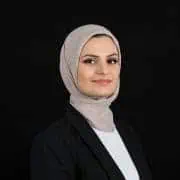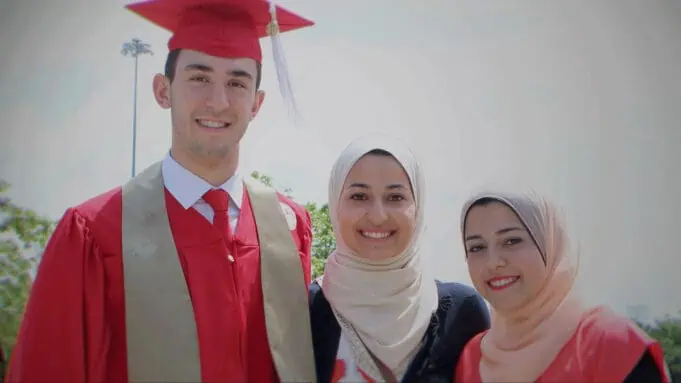2023 | 1hr 39m | Documentary
36 Seconds: Portrait of a Hate Crime is a beautifully filmed documentary focused on the horrific events of a 2015 home invasion, but also focused on so much more. Viewers see this very American family raised in the United States, their love for this country, their career success, their sense of community. The only difference between them and the rest of us? The women wear hijabs and the family’s holy book is the Koran.
Featured during the May 2024 CAAMFest in San Francisco, 36 Seconds quietly unfolds for us the university town, the crime, community reaction, and the campaign to expose and eliminate hatred of Muslims in America.
The film opens with commentary by Chris Blue, chief of police in Chapel Hill. “This is a very safe community, so when something like this happens here, it is significant.” And one question persists throughout the film: they (the three young Muslims) were so successful, so beautiful, so amazing. Why were they targeted?

Dr. Suzanne Barakat was born and raised in North Carolina. She completed undergrad school and medical school at UNC Chapel Hill, a university town renowned for its international student populace and for its acceptance of diversity. She did her residency at UCSF.
In 2015 she lost her brother and two sisters-in-law to a hate crime committed by a white neighbor, a man who would not allow himself to be at peace with other religions and cultures.
These multiple murders stunned Chapel Hill, and presented a unique challenge to this accomplished American family.
Grieve in private as they read the Koran and work hard to practice forgiveness and to be at peace with God’s will? Or go public to educate other Americans and the news media about what really happened?
The Barakat family chose the latter approach. With quiet dignity, Dr. Barakat and her father (a family therapist), along with others in the academic and Muslim communities, challenge the police narrative that these killings were about a dispute over parking.
Director Tareq Albaba has 20 years of film experience, focused on human rights and social issues. He interviews the chief of police and faculty members as well as attorneys who served in the prosecutor’s office and in the Department of Justice. He shows tapes of the killer’s confession and the excuses the killer makes for taking a 357 SIG from his home, walking next door, and executing two college graduates and a student in their early 20s.
Again and again Dr. Barakat explains why hate cannot be the response to the killer’s hatred.
The interviews are gentle but probing, the pace is leisurely, so that the viewers may comprehend the shock and chaos, the incredible pain and the eventual determination to challenge the killer’s version of a parking dispute gone bad.
Dr. Suzanne Barakat is luminous in her way of handling the indescribable pain and then finding strength to present herself to the media for endless interviews and requests for comment.
Again and again Dr. Barakat explains why hate cannot be the response to the killer’s hatred. She is brilliant and brave, as she speaks of working in the ER where a woman refuses to let Dr. Barakat treat her child because the doctor is wearing a hijab. Readers should also consider listening to her memorable TED talk in 2016.
Poignant and powerful, possibly director Tareq Albaba’s finest work, 36 Seconds has been shown in colleges, universities and at civic functions.




